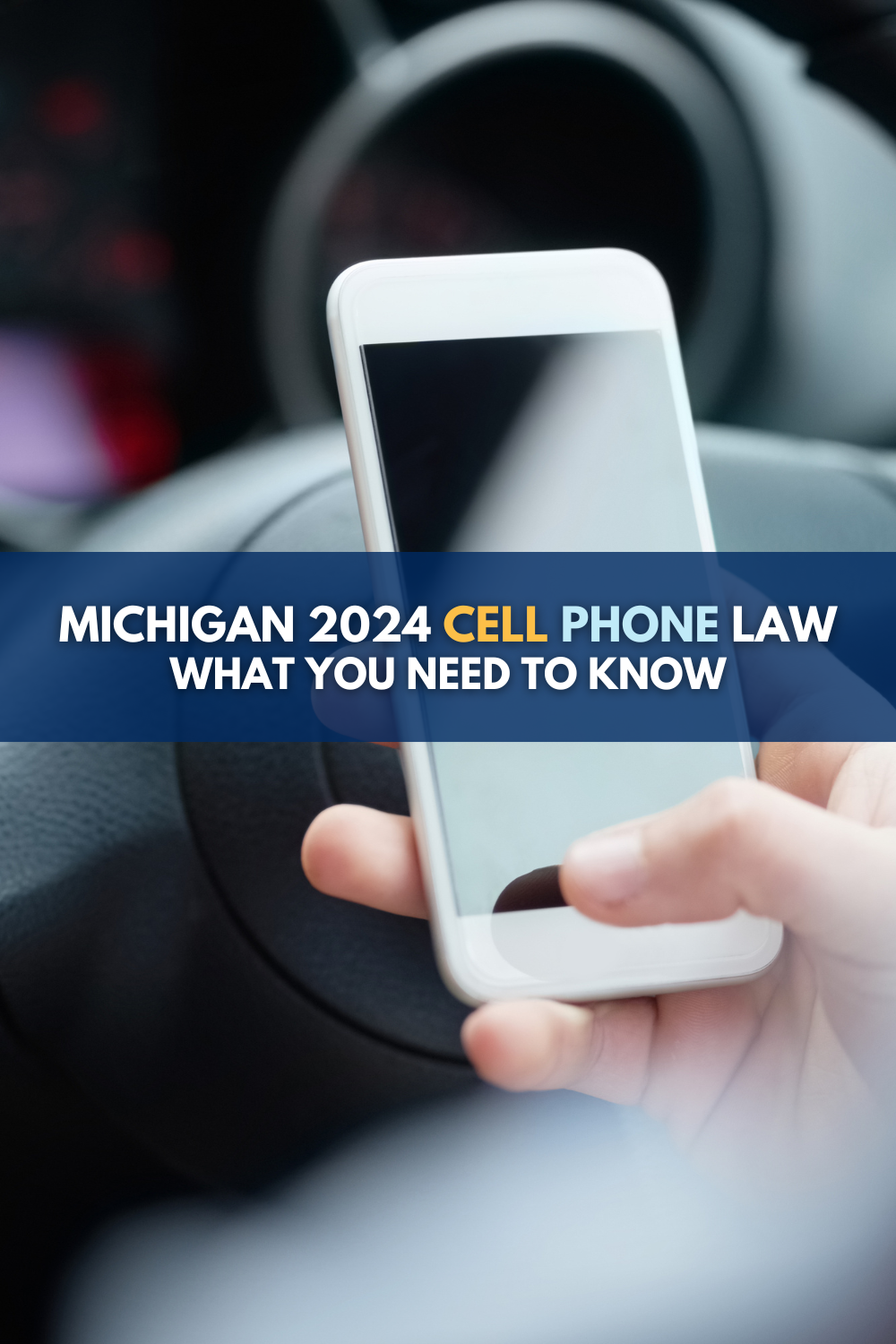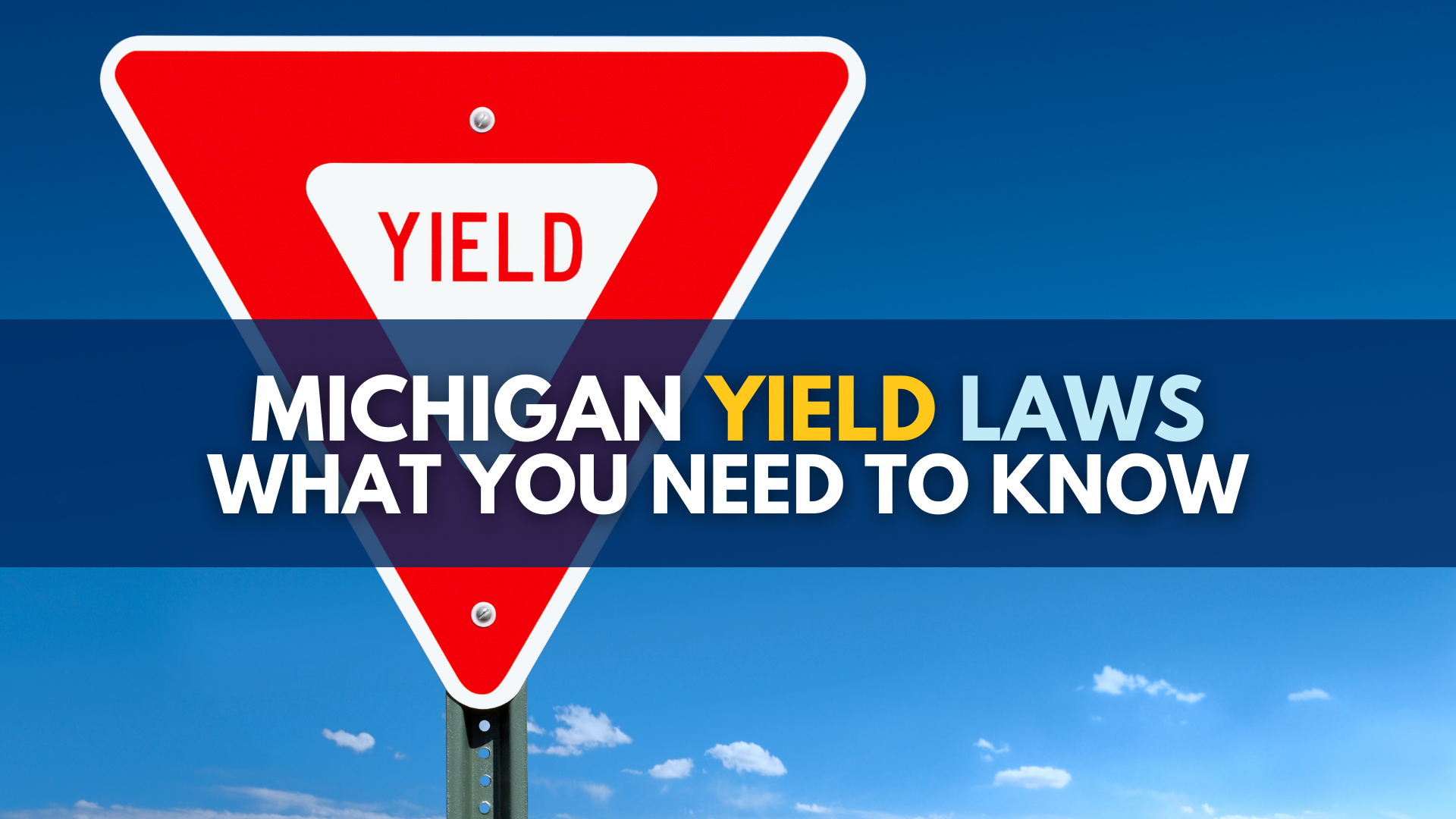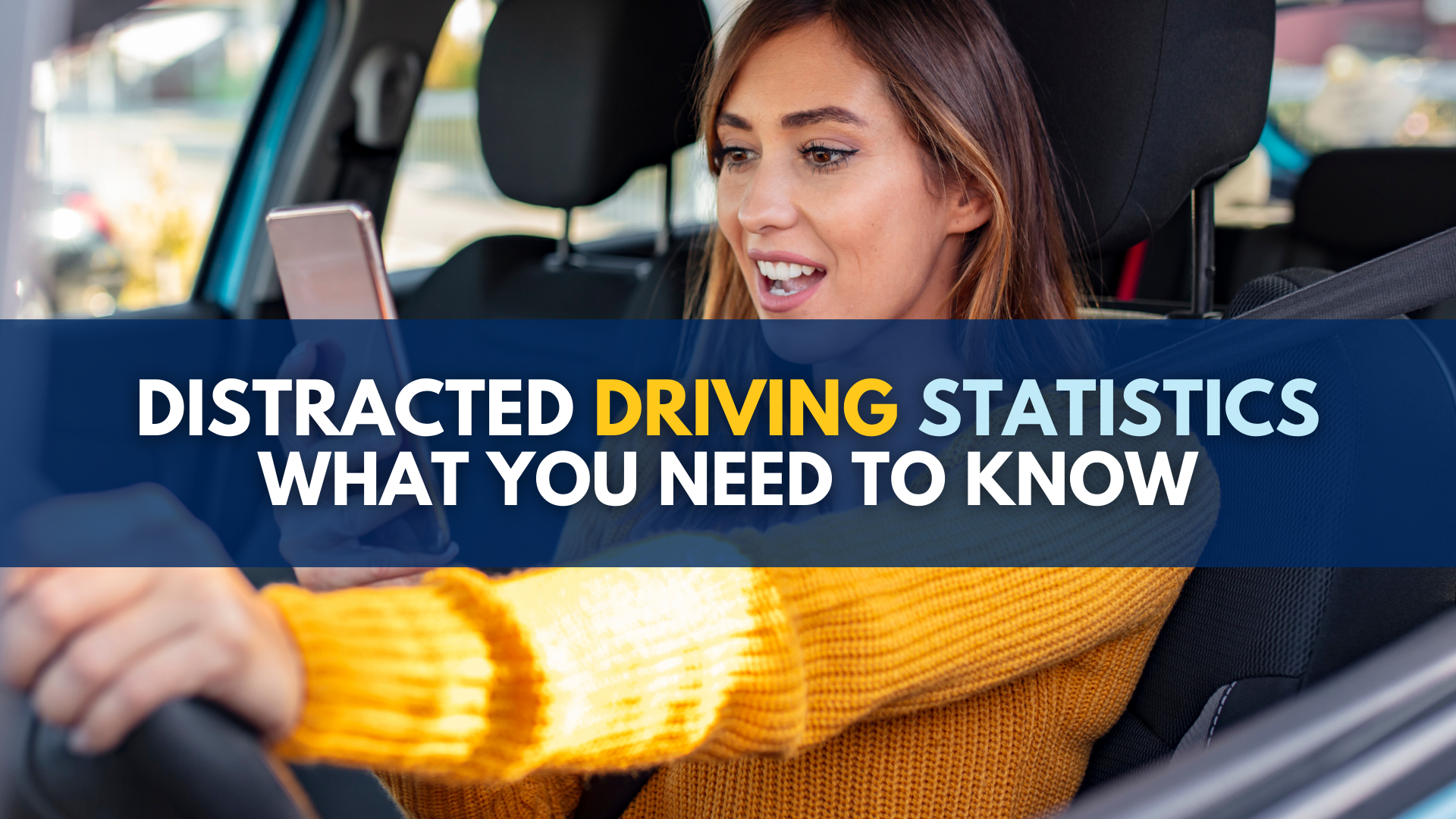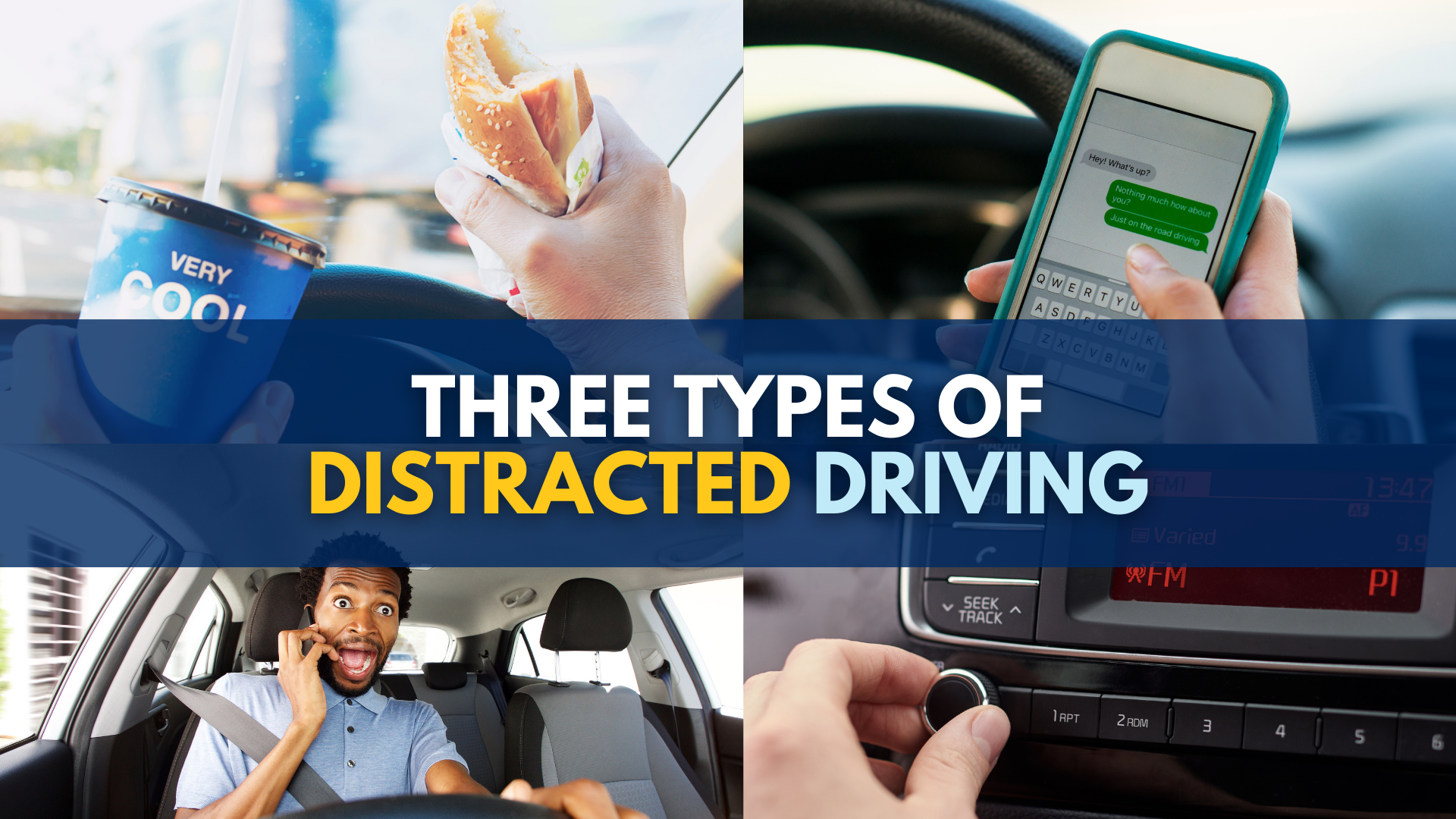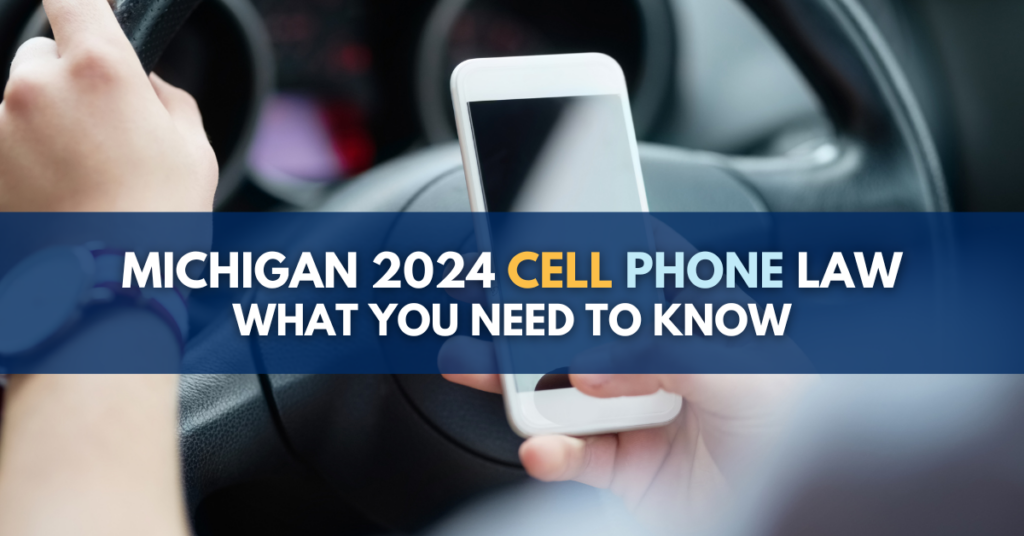
The Michigan cell phone law prohibits all drivers from using a hand-held cell phone to text, talk on the phone, watch videos, and go on social media while they are driving. However, there is an exception for phones that are used in “hands-free” mode. Violators face fines, community service, and points.
The law will make our roads safer. It will reduce the number of car accidents caused by texting and driving by getting drivers’ hands off their phones. It also raises public awareness about just how dangerous cell phones can be and the many types of dangerous driving distractions, such as texting, talking on the phone, watching videos, and using social media while people are supposed to be watching the road. Finally, it will have more of a deterrent effect with its increased penalties.
As a car accident lawyer, I know this will help to reduce the number of car accidents that are caused by distracted driving.
In fact, the Michigan cell phone is already reducing distracted-driving-related crashes and saving lives.
Since it took effect nine months ago, Michigan’s law banning hand-held cell phone use while driving “has prevented 2,485 crashes, 11 fatalities, 1,400 injuries and $98 million in economic damages across Michigan’s 8 million drivers,” according to a joint report by the Governors Highway Safety Association and Cambridge Mobile Telematics.
The report determined that as a result of the law, which the police began to enforce on June 20, 2023, the occurrence of distracted driving in Michigan has dropped by 9.5%.
But there is still room for improvement with the Michigan cell phone law.
Most importantly, because of the way the law is written, it creates a dangerous loophole that allows drivers who are using their cell phones in “hands-free” mode (or in “voice-operated” mode or in a “mount”) to still text and talk on the phone while they’re driving.
It also will allow drivers who have phones mounted in “hands-free” mode to watch videos and go on social media while they’re driving. I recognize most people and likely most lawmakers may not fully appreciate how increasingly common this is, but I do. I’ve now had several truck accident cases where long haul drivers were streaming movies (in one case porn), and more cases than I can count of drivers creating TikTok videos and other social media while driving – and of course then causing car wrecks because they were driving distracted. These loopholes in the 2024 Michigan cell phone law will allow drivers to continue to drive dangerously distracted while the phone is hands-free.
Unfortunately, this cannot possibly be the comprehensive safety fix that our lawmakers intended when they passed the new law.
Also, the penalties for violating the law still need to be further increased to match the seriousness of the dangers involved. For instance, even though the crash risk for distracted driving is similar to (if not higher than) the crash risk for drunk driving, the punishments for distracted driving are much lower than the penalties for drunk driving.
As an auto accident attorney, I can only share that the problem with cell phones in cars – which includes using social media and even streaming videos while driving – is far worse than people can possibly imagine. From my own auto accident and truck accident cases, I see the havoc that distracted driving is causing firsthand in the cases I litigate. These are almost always completely preventable car crashes.
I am also the current Chair of the American Association for Justice Distracted Driving Litigation Group, and I speak on distracted driving throughout the country. I have litigated and worked with plaintiff personal injury lawyers on horrific truck accident cases involving cell phones and distracted driving. I’ve worked on some cases that have made national news, such as where truckers have been streaming porn while driving. In my own truck accident cases, it is now common to catch serious violations by truckers by downloading their mobile phones and comparing what they recorded in e-logs to the location and to the activity on the cell phones they were using when they cause truck accidents.
Educating the public about the dangers of distracted driving is the most important step to making our roads safe. Educating drivers about the 2024 Michigan cell phone law is a good first step.
I also speak to high school students in Michigan about the dangers of texting and driving. Here is a video of my presentation to students at Berkley High School in Berkley, Michigan:
Is there a cell phone law in Michigan?
Yes, under the cell phone law in Michigan:
- Drivers can’t text on hand-held devices
- Drivers can’t call on hand-held devices
- No viewing videos on hand-held devices
- No social media on hand-held devices
- There is a “hands-free” use exception
- Fines range from $100 to $250
- 16-24 hours of community service
- 1 point on record for 2nd violation
- 2 points on record for 3rd violation
- Driving school after 3rd violation
To learn more, please check out this video of attorney Brandon Hewitt’s interview on WZZM TV 13:
What is prohibited under the Michigan cell phone law?
Drivers on Michigan roads are prohibited from using a hand-held cell phone or mobile electronic device to: (1) send or receive a call; (2) send, receive, or read a text; (3) view, record, or transmit a video; and (4) access, read, or post to a social networking site. (MCL 257.602b(1), (12)(a) and (13))
Is there a hands free law in Michigan?
There is a hands free law in Michigan under the cell phone law. Drivers may use their cell phones or mobile electronic devices while they’re driving so long as their phone is: (1) in “hands-free” mode; (2) in “voice-operated” mode; or (3) “placed in a mount.” (MCL 257.602b(3)(d) and (f))
What is the hands free driving law in Michigan?
The hands free driving law in Michigan allows drivers to text and make phone calls while they’re driving so long as the cell phone or electronic mobile device they’re using is in: (1) in “hands-free” mode; (2) in “voice-operated” mode; or (3) “placed in a mount.” (MCL 257.602b(3)(d) and (f))
However, because of the way the hands free driving law in Michigan is written, it also allows drivers to watch and record videos and read and post to social media while they’re driving so long as the cell phone or device they’re using is in “hands-free” or “voice-operated” mode or is “placed in a mount.”
What are the penalties for violating the Michigan cell phone law?
The penalties for violation of the Michigan cell phone law include: (1) fines from $100 to $250; (2) 16-24 hours of community service; (3) driving school for 3 or more violations in a three-year period; and (4) points on the driving record of repeated offenders.
Here are more details about the penalties under the law:
- Fine for a first violation remains $100, but a distracted driver could also get 16 hours of community service. (MCL 257.602b(4)(a))
- Fine for a second or subsequent violation increases from $200 to $250, but a distracted driver could also get 24 hours of community service. (MCL 257.602b(4)(b))
- Three (3) or more violations within 3-year period, distracted driver must complete a “basic driver improvement course” (MCL 257.602b(8))
- 1 point for second violation of MCL 257.602b. (MCL 257.320a(1)(y))
- 2 points for third or subsequent violation of MCL 257.602b. (MCL 257.320a(1)(x))
How does the Michigan cell phone law affect teen drivers?
The Michigan cell phone law closes the “voice-operated system” loophole in Kelsey’s Law which previously allowed teen drivers to talk on the phone while they were driving if they were doing so on a “voice-operated system,” rather than on a hand-held cell phone.
Under Kelsey’s Law, teen drivers with a Level 1 or Level 2 graduated licensing status are prohibited from talking on a hand-held cell phone while driving. (MCL 257.602c(1))
The “voice-operated system” loophole or exception was formerly set forth in subsection (3), but that subsection has been eliminated by the new Michigan cell phone law.
Violation of Kelsey’s Law renders a teen driver “responsible for a civil infraction,” but there is no fine and no points will be assigned to the teen driver’s future driver’s license. (MCL 257.602c(4); 257.320a(2))
At most, the “provisions and provisional period” of the teen’s graduated licensing status “shall be expanded or extended” for a Kelsey’s Law violation. (MCL 257.310e(7))
The new Michigan cell phone law does not alter the consequences – or lack thereof – for a violation of Kelsey’s Law.
Kelsey’s law, which makes it illegal for teen drivers to use a cell phone while driving, was passed to honor Kelsey Raffaele, 17, of Sault Ste. Marie, who tragically died in a cell phone-related automobile crash in 2010. In response to her family’s tragedy, Kelsey’s mother Bonnie Raffaele almost single-handedly worked to obtain the passage of the law designed for teen drivers known as Kelsey’s Law in 2013.
Through Michigan Auto Law’s ongoing partnership with Bonnie to raise awareness about distractions facing young drivers, we offer the Kelsey’s Law Distracted Driving Scholarship every year which is open to Michigan high school seniors and juniors.
To learn more about teen drivers and distracted driving, please check out this video:
Why is the Michigan cell phone law so important for teen drivers?
The law’s restriction on the cell phones by teen drivers is important for teen drivers because the AAA-Foundation for Traffic Safety has found that newly licensed teen drivers are 6 times more likely to be in a serious crash when there’s loud conversation in the car.
Distracted driving dangers pose a unique threat to teen drivers because their brains are still developing – specifically their prefrontal cortex which regulates impulse control and disinhibition. As such, they may not be as capable as an adult driver to resist the temptation to answer a call or text while they are driving.
Does the Michigan cell phone law 2024 address remote texter liability?
The Michigan cell phone law 2024 does not address and, thus, does not affect remote texter liability, which is the legal concept that if you text a person whom you know is driving and will likely answer your text even if driving, then you may be held legally liable if the person causes a crash resulting in injury or death.
The threat of remote texter liability is real not only for adults and teen drivers, but especially for businesses that regularly communicate via text with delivery drivers and employees who drive as part of their job.
When the Detroit Free Press interviewed me about the potential impact of remote texter liability on businesses, I explained:
“If you text your employees while they’re behind the wheel [and they’re “likely to read and reply to your text messages”], you could be sued on the theory of ‘remote texter liability’ if the employee whom you’re texting gets in a car crash and injures or kills someone else.”
To learn more, check out this video:
The dangers of distracted driving
The underlying science is sadly quite clear and unrefuted about the dangers of distracted driving that the law strives to combat:
- “Text messaging made the risk of crash or near-crash event 23.2 times as high as non-distracted driving,” according to a study from the Virginia Tech Transportation Institute.
- The Virginia Tech Transportation Institute found that dialing a handheld mobile phone while driving made the driver “12 times more likely to crash.”
- The AAA-Foundation for Traffic Safety has found that: (1) drivers’ overall crash risk “nearly doubled” when they were “engaging in all forms of visual-manual mobile phone tasks”; and (2) “visual-manual mobile phone interaction” while driving makes drivers three times more likely to be involved in a “road departure crash” and more than seven times more likely to cause a rear-end collision.
Need help finding the right lawyer after being injured by a distracted driver? Call Michigan Auto Law first
If you have suffered a personal injury in a car accident caused by someone who violated the Michigan cell phone law and you would like to speak with an experienced attorney, you can call us toll free anytime 24/7 at (800) 968-1001 for a free consultation with one of our car accident attorneys. We will answer your questions about your legal rights to pain and suffering compensation, economic damages, auto No-Fault insurance PIP benefits, and settlements in cases like yours. There is absolutely no cost or obligation. You can also get help from an experienced auto accident attorney by visiting our contact page or by using the chat feature on our website. Steven Gursten is the current President of the American Association for Justice Distracted Driving Litigation Group. He lectures and teaches auto accident attorneys throughout the nation on what distracted driving is and on how to obtain evidence of distracted driving in their own cases. Steve has spoken at national webinars on the subject of distracted driving evidence and discovery. Also, Steve speaks to high school students and parent groups throughout Michigan as part of Joel Feldman’s End Distracted Driving Campaign school and parent presentations.
